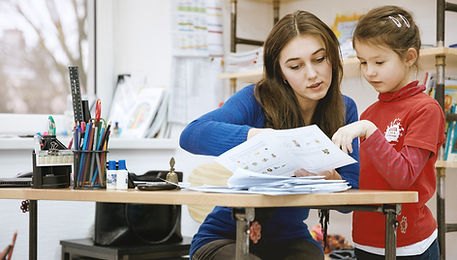Speech & Language Therapy
Children's Speech Language Therapy at Sensational Kidz Therapy Services is customized to the priorities of each family and child. All Sensational Kidz pathologists have had extensive behavioral training and believe in an eclectic approach and individualizing and personalizing sessions. We believe in involving parents, where possible, in their child's progress. We ask parents to carryover play-based activities outside of our therapy sessions to reinforce progress initiated in the therapy session. We also meet with parents on an ongoing basis to discuss, collaborate, and refine therapy goals. We also make it a priority, where it applies, to share information with others that assist in treating the whole child across settings at home, school, and other environments or therapy treatments, such as physical or occupational therapists.
SENSATIONAL KIDZ SPECIALIZES IN:
-
Apraxia of Speech or Developmental Apraxia
-
Articulation Disorders
-
Asperger’s Syndrome
-
Auditory Processing Disorders
-
Autism
-
Expressive Language Delays
-
Language Based Learning Disabilities
-
Language Processing Problems
-
Pervasive Developmental Disorder
-
Phonological Delays
-
Receptive Language Delays
-
Area of Pragmatics
Speech and language are distinct entities, with individuals possibly encountering challenges in one or both domains. Understanding this disparity is crucial. Seek guidance from a speech-language pathologist (SLP) if any concerns arise.
A Language Disorder pertains to the breakdown in the ability to express, comprehend, or adhere to social language conventions. Language encompasses rules such as grammar and syntax, and it can manifest through spoken, written, or gestural means. Notably, language can exist independently of speech.
Conversely, a Speech Disorder involves difficulties in articulating sounds and words effectively, leading to potential unintelligibility. It concerns the physical execution of speech sounds. Various subtypes of speech disorders include Articulation disorders, affecting the production of specific sounds, Fluency disorders, marked by disruptions in speech flow, and Voice disorders, characterized by abnormalities in pitch, loudness, or quality.
Early identification and intervention are pivotal, as they enhance access to language resources and support.
